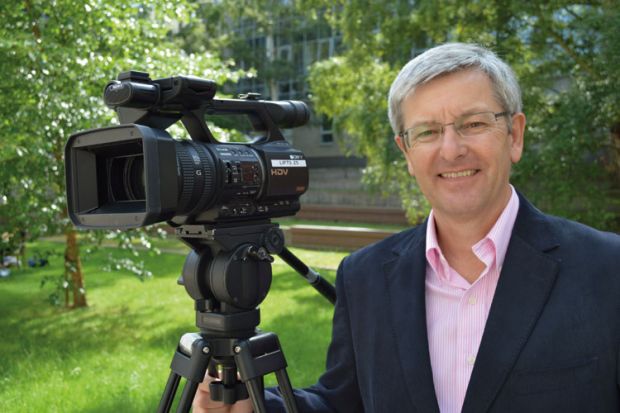Where and when were you born?
In Derby in 1953.
How has this shaped you?
I was brought up in rural Staffordshire, so had a wry smile whenever the BBC was criticised for being the preserve of a metropolitan southern elite.
Are you excited or weighed down by expectation for your new role?
It’s a big task to create a whole undergraduate course from scratch, but the challenge to find and develop the new breed of journalists who will thrive in the digital age is one to be relished.
With news reporting, how difficult is it to avoid complaint and opprobrium?
Avoiding complaint cannot be your priority. The key thing is to try to make the correct judgements, without fear or favour. The BBC tries to equip its journalists to make sound and confident editorial decisions - often on controversial matters that are not black and white. Because of that, and because the BBC is publicly accountable, those decisions will always be open to debate.
Does Britain compare favourably with other countries in its news coverage?
The British media scene has incredible richness and range, and our media are extremely vigorous. Recent events have shown the dangers of over-reaching, but Britain is the envy of many other countries that have supine or state-controlled media.
How has the BBC changed since you started 30 years ago, and how is it perceived?
I’ve seen two principal changes: first, in the sheer volume of output of BBC News – there are four 24-hour news channels and two constantly updated websites before you even mention the flagship radio and television programmes, and its vast regional offerings. And second, in the technological advances that make it possible to report live from anywhere on the planet, and to have material on the air within hours – if not minutes. The BBC is constantly buffeted by an unfriendly press, and has never claimed to be perfect; but I think many British people still look on it as the best and most reliable news provider they have, and its stock overseas remains very high.
What is the future for reporting and journalism in general?
Professional journalism has to stake out its ground and demonstrate the continuing value of accurate, independent reportage in an age in which anyone can be an amateur reporter, and everyone has access to almost limitless information, much of it of dubious quality.
What keeps you awake at night?
My knees. Too much football and rugby in my younger days.
As a child, what did you want to do when you grew up?
I think I always knew I wanted to be a writer, but I think I probably thought of a career as a historian – until I got a few things in a weekly paper and was hooked.
Who have you always admired?
My boyhood heroes were footballers: Gordon Banks, Jimmy Greenhoff and Alan Hudson. The journalists I most admire are not star names but those who work off-air to help produce great output.
What’s your biggest regret?
Regrets are a waste of time and energy.
What advice would you give to your younger self?
Go for it! I learned to be bolder as I got older.
What was your university experience like?
Conventional. I studied English literature and English history at the University of East Anglia, got a 2:1. I thoroughly enjoyed myself.
What’s your most memorable moment from university?
When our scratch six-a-side team won the Kenninghall Trophy, beating a load of local village teams.
If you were a prospective university student now, facing £9,000 a year fees, would you opt to study or go straight into work?
My generation didn’t really have to think twice about going to university, if we wanted to and we managed reasonable grades. The fear of accumulating huge debts must give a lot of today’s students pause for thought. But a good degree is a vital first step on many career paths, and the university experience is still an exciting and stimulating rite of passage.
Have you had a eureka moment?
Not a single lightbulb moment, but there has been the occasional flash of illumination before the darkness drops again.
Register to continue
Why register?
- Registration is free and only takes a moment
- Once registered, you can read 3 articles a month
- Sign up for our newsletter
Subscribe
Or subscribe for unlimited access to:
- Unlimited access to news, views, insights & reviews
- Digital editions
- Digital access to THE’s university and college rankings analysis
Already registered or a current subscriber? Login
